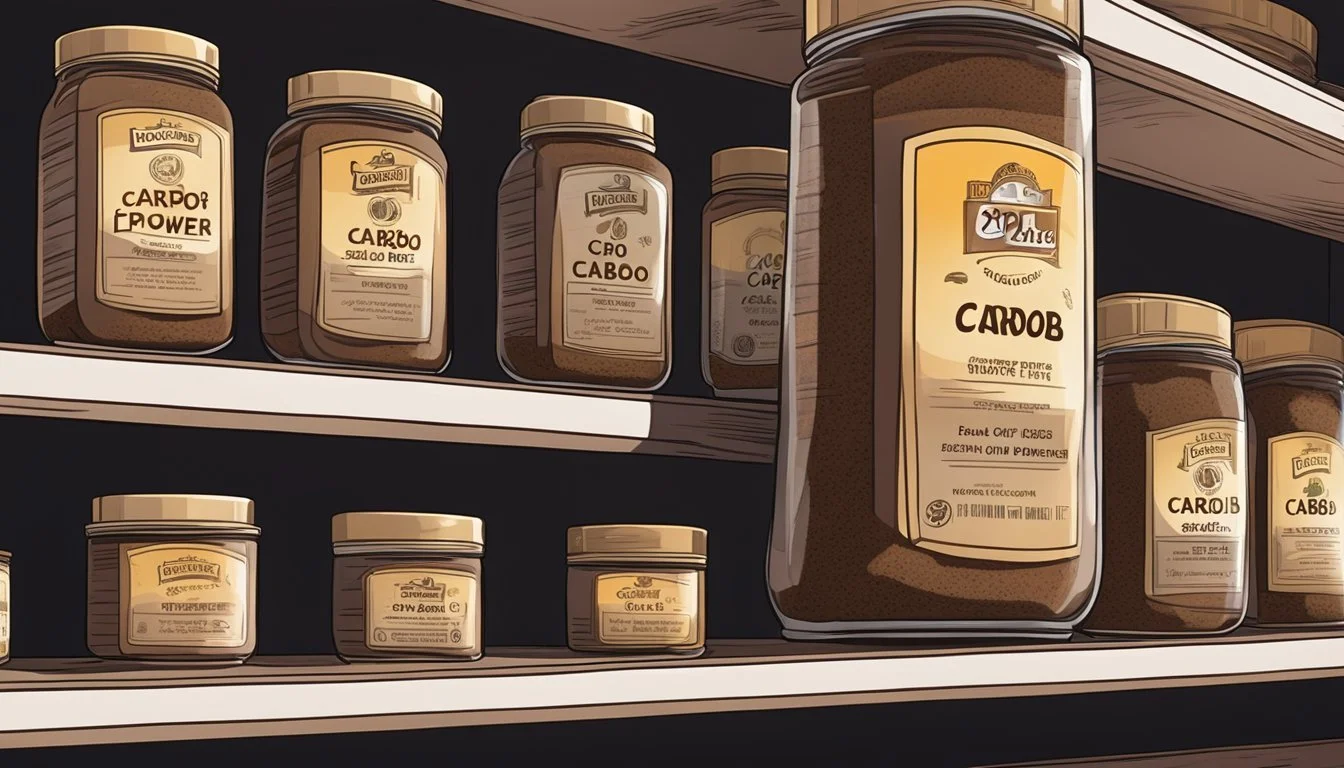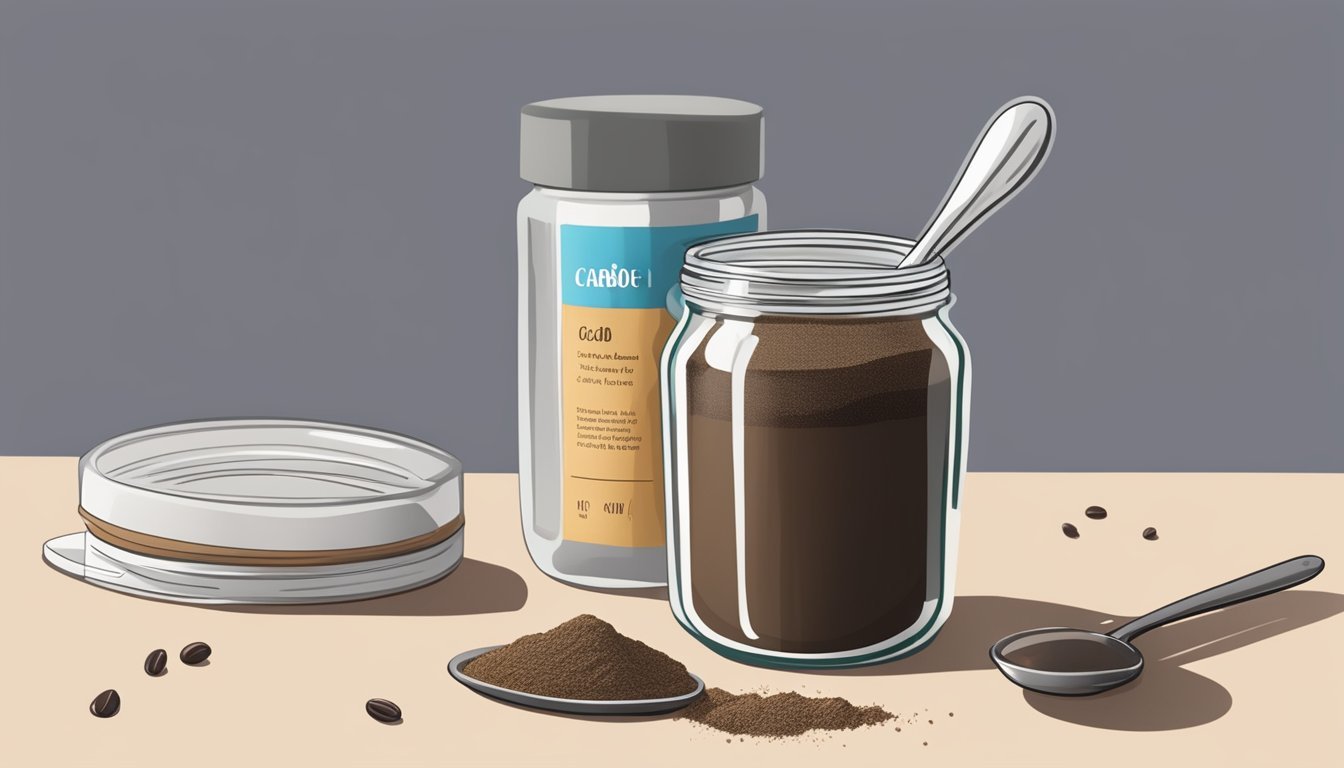How Long Does Carob Powder Last?
Shelf Life and Storage Tips
Carob powder (how long does carob powder last?) is a common ingredient in many kitchens, admired for its natural sweetness and unique flavor. Often used as a substitute for cocoa powder, it's derived from the ground pulp of carob pods, the fruit of the carob tree. Unlike cocoa, carob is caffeine-free and low in fat, making it a preferred choice for those monitoring their caffeine or fat intake.
The shelf life of carob powder is a point of interest for consumers and food enthusiasts. Generally, carob powder has a long shelf life and can be used even after the typical expiration date of 12 months. However, its longevity does not equal indefinite usability. Storing carob powder properly is key to maintaining its quality over time.
Under optimal conditions, carob powder maintains its quality well beyond a year without significant deterioration. While it may stay safe to consume beyond this period, factors such as exposure to air, moisture, and light can affect its texture and flavor. Users may notice clumping or subtle changes in taste as the carob powder ages, which are indicators that the product may be past its prime. It's important to observe the condition of carob powder before use to ensure the best culinary outcome.
Overview of Carob
Carob is derived from the carob tree (Ceratonia siliqua), a species native to the Mediterranean region. The tree is known for its edible pods, which are often processed into carob powder. Carob powder is a fine substance utilized similarly to cocoa powder, especially in baking and cooking.
The carob tree is an evergreen that flourishes in the Mediterranean climate, valued for its hardiness and drought resistance. The tree’s fruit, carob pods, are rich in natural sugars and fiber when fresh. These pods are typically harvested, dried, and then ground to produce carob powder.
Carob itself is celebrated for its health benefits. It is high in fiber, low in fat and contains essential nutrients such as calcium. Unlike cocoa, carob is naturally sweet and caffeine-free, which makes it a preferred alternative for individuals seeking to reduce their caffeine intake.
In its powdered form, carob retains much of the nutritional value of the pods and offers a unique flavor profile, often described as sweet and earthy. In contrast to chocolate, carob's taste is less bitter and more malty, making it a popular choice for those looking for a mild chocolaty flavor without the associated stimulants found in cocoa.
The versatility of carob powder extends beyond sweet dishes; it can be incorporated into savory recipes to add depth and complexity. Whether used in home kitchens or commercial food products, carob provides an adaptable and health-conscious ingredient option.
Carob Powder Profile
In examining the carob powder profile, one notes its significant nutritional value, unique flavor characteristics, and associated health benefits. This section explores these attributes in detail.
Nutritional Value
Carob powder is a notable source of dietary fiber, and it contains essential minerals such as calcium, potassium, magnesium, iron, phosphorus, and trace amounts of vitamins, including niacin, riboflavin, and vitamin B6. It is naturally low in fat and does not contain caffeine, lending to its status as a healthier substitute for traditional cocoa powder.
Nutrients in Carob Powder (per 100g):
Fiber: High
Calcium: High
Potassium: Good Source
Protein: Low
Iron: Good Source
Magnesium: Good Source
Niacin (Vitamin B3): Present
Phosphorus: Good Source
Carbs: Moderate
B Vitamins: Trace amounts
Riboflavin (Vitamin B2): Present
Flavor Characteristics
Carob powder offers a sweet and earthy flavor that bears a similarity to cocoa powder but with distinct undertones. What sets it apart is its naturally inherent sweetness, which enables it to be used in recipes with reduced amounts of sugar. Its taste profile is rich and can vary slightly depending on whether it is raw or roasted, with the latter having a deeper flavor.
Flavor Profile:
Taste: Naturally sweet, earthy
Roasted Carob: Deeper flavor
Raw Carob: Milder taste
Health Benefits
The health benefits of carob powder stem from its nutritional content. Its high fiber content can aid in digestion and contribute to a feeling of fullness. Its lack of caffeine makes it an excellent choice for individuals sensitive to stimulants. The antioxidants present in carob can also play a role in neutralizing free radicals, contributing to overall health.
List of Notable Health Benefits:
Digestive Health: Promotes due to high fiber.
Bone Health: Supported by calcium content.
Blood Health: Iron content aids in preventing anemia.
Heart Health: Potassium helps regulate blood pressure.
Energy Metabolism: B vitamins, niacin, and riboflavin assist in metabolic processes.
Carob vs. Cocoa Comparison
Carob and cocoa are frequently compared owing to their similar uses in cooking and baking. Understanding these ingredients' nutritional profiles, flavor nuances, and health implications is key for consumers and culinary enthusiasts who might consider them as alternatives in recipes.
Nutritional Differences
Carob powder typically contains a lower fat content than cocoa powder, while being richer in B vitamins. Cocoa, on the other hand, boasts a higher concentration of minerals, notably iron and magnesium.
Nutrient Carob Powder Cocoa Powder Fat Content Lower Higher Sugar Content Higher Lower B Vitamins Higher presence Lower presence Iron Lower concentration Higher concentration Magnesium Lower concentration Higher concentration
Carob also has a different mineral ratio that may affect a person’s dietary intake, especially if carob is consumed in large quantities.
Taste and Flavor
Carob is characteristically sweeter than cocoa and lacks the bitterness associated with cocoa’s flavor profile. Due to its inherent sweetness, carob may not require additional sweeteners when used as a substitute for cocoa powder in recipes like brownies or for making a chocolate substitute such as carob chocolate chips.
Characteristic Carob Cocoa Sweetness Naturally sweeter Less sweet, often requires added sweeteners Flavor Profile Lacks bitterness Bitter, rich flavor
Health Implications
Cocoa contains theobromine, a compound similar to caffeine that can have stimulating effects. Carob is free from theobromine and does not contain caffeine, making it a suitable option for individuals sensitive to stimulants. Unlike cocoa, carob is naturally gluten-free, which can be essential for those with gluten intolerances or celiac disease. The health benefits associated with cocoa and carob differ mainly due to these respective compounds and nutritional compositions.
Health Factor Carob Cocoa Stimulant Compounds No caffeine or theobromine Contains theobromine Suitable for Gluten Sensitivity Naturally gluten-free May contain gluten, depending on processing
Carob is also sometimes utilized for its potential health benefits in aiding digestion and providing a degree of relief for certain gastrointestinal issues. However, there's no one-size-fits-all answer regarding health benefits, and one's dietary choices should be made based on personal health considerations and nutritional needs.
Uses of Carob Powder
Carob powder offers a robust, sweet flavor and serves as a staple in various culinary applications due to its versatility. It is derived from the sweet pulp of the Mediterranean carob tree and is often used as a substitute for cacao in sweet treats.
In Baking
Carob powder is widely used as a gluten-free and dairy-free alternative to cacao in baked goods. Its sweeter taste and brown powder texture make it popular for carob brownies, pancakes, and pudding. It’s also found in carob chips, which are used similarly to chocolate chips.
As a Sweetener
The natural sweetness of carob makes it an excellent natural sweetener in various dishes and beverages. It is a healthy alternative to conventional sweeteners, able to enhance the flavor profile of ice cream, oatmeal, and milkshakes. A notable concoction is the carob shake, which is both high in fiber and low in fat.
Alternative Dietary Options
For individuals with celiac disease or those following a vegan diet, carob flour offers a wealth of possibilities. It can replace wheat, barley, and rye in recipes, accommodating those avoiding gluten, and provides a non-dairy option for vegan desserts and snacks. Carob is also well-known for aiding digestion and may help in managing diarrhea symptoms.
Storage and Shelf Life
Carob powder can last up to a year when stored correctly, maintaining its quality and flavor profile.
Proper Storage Conditions
To prolong the shelf life of carob powder, it should be stored in an airtight container to prevent exposure to moisture, which can compromise its quality. Ideally, the storage environment should be cool and dry to prevent any degradation of the powder. Carob powder should not come into contact with direct sunlight or any significant heat sources, as these can accelerate the loss of flavor.
Signs of Spoilage
Carob powder does not spoil in the manner that some foods do, but it will lose its flavor over time, rendering it bland and less desirable for culinary uses. Although it doesn't become inedible, it's important to look for any changes in aroma or taste. Additionally, if carob powder is exposed to moisture and develops any mold, it should be discarded. The presence of inedible seeds or foreign particles is another indicator that the carob powder may not have been stored properly.
Potential Health Considerations
When considering the consumption of carob powder, one should be informed about both the positive effects it may have on health as well as any potential adverse reactions it could cause.
Positive Effects
Carob powder is recognized for its dietary fiber content which supports digestive health. It's a low-fat, low-sodium option that can fit well into a heart-healthy diet recommended by the American Heart Association. The fiber content can assist in weight loss by promoting a feeling of fullness. Additionally, carob is naturally sweet, which may help in keeping blood sugar levels in balance, offering an advantage for individuals seeking to reduce their sugar intake. Moreover, carob powder contains calcium, beneficial for bone health and may help prevent conditions like osteoporosis.
Nutrition Facts Value Calories Low Fat Virtually none Dietary Fiber High Sodium Low
Adverse Reactions
Despite its health benefits, carob can have side effects, although these are relatively rare. Individuals with existing allergies to legumes might experience allergic reactions to carob, as it belongs to the legume family. Carob also contains oxalates that can contribute to the formation of kidney stones if consumed in very high amounts. Moreover, for those sensitive to tyramine, an amino acid found in carob, it might trigger migraine headaches. Since it is a substitute for cocoa, which is often restricted for people with high cholesterol or high blood pressure, carob offers a lower-tyramine alternative but should still be consumed in moderation.
Potential Side Effects Relevant For Individuals With Allergic Reactions Legume Allergies Kidney Stones High Oxalate Consumption Migraine Headaches Tyramine Sensitivity







